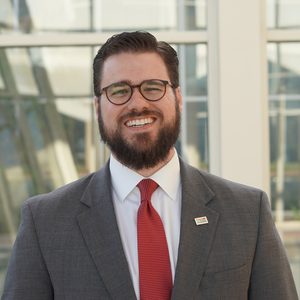
Criminal Justice
Ryan Haynie | July 21, 2020
To reduce over-policing, stop over-legislating
Ryan Haynie
Those wishing to “defund” the police should join those of us who are fighting for limited government.
Why? Because ultimately every law or regulation is enforced by a cop. There is a lot that can be done to limit citizens’ negative interactions with law enforcement, but the most practical may be to give law enforcement fewer laws to enforce.
Every law or regulation requires some enforcement mechanism. This has nowhere been more obvious than the recent calls for mask mandates. As Oklahoma City considered, and eventually passed, a mask mandate, questions remained regarding enforcement. What kind of enforcement can citizens expect? What level of force will law enforcement use to enforce such a mandate?
Here, as in other states, leaders are requesting that citizens not call 911 to report mask violations. Law enforcement simply has too much on their hands already to respond to mask infractions. Regardless of how the mandates are enforced, they illustrate that all laws and regulations are eventually enforced at the end of a gun. If reform advocates truly want to reduce interactions with police, why don’t we try giving them less to enforce?
To cite an example where government got it right, a few years ago a bartender in Oklahoma City was arrested for selling liquor infused with bacon. After a public outcry, the ABLE commission clarified its position allowing for infused alcohol. Later, and to the legislature’s credit, the law was modernized to eliminate confusion and provide guidance to bars and restaurants. The move was a win both for those who advocated limited government and for those who fear overzealous law enforcement. This isn’t to take away from reasonable reforms that can be, and should be, addressed. Issues like qualified immunity and collective bargaining by police unions should absolutely be on the table. But we can strike a blow for police reform and limited government by reducing the number of rules and regulations police are asked to enforce.

Ryan Haynie
Criminal Justice Reform Fellow
Ryan Haynie serves as the Criminal Justice Reform Fellow for the Oklahoma Council of Public Affairs. Prior to joining OCPA, he practiced law in Oklahoma City. His work included representing the criminally accused in state and federal courts. Ryan is active in the Federalist Society, serving as the Programming Director for the Oklahoma City Lawyer’s Chapter. He holds a B.B.A. from the University of Oklahoma and a J.D. from the University of Oklahoma College of Law. He and his wife, Jaclyn, live in Oklahoma City with their three children.